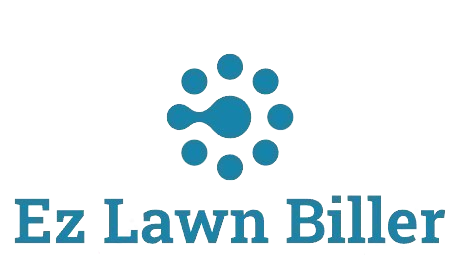How to Stay Compliant in Your Lawn Care Business
Compliance is a crucial element for any lawn care business. As regulations change and evolve, staying informed is essential to avoid legal issues and ensure your business operates smoothly. In this comprehensive guide, we will explore how to maintain compliance within your lawn care business. We will cover various aspects, including licensing, safety regulations, environmental considerations, and financial practices, providing you with actionable insights to ensure your business thrives.
In the world of lawn care, compliance is not just a matter of following rules; it’s about creating a sustainable business that resonates with your clients. As you navigate through this guide, you will discover the importance of various compliance requirements and how they contribute to the reputation and success of your lawn care business. From understanding licensing requirements to implementing safety protocols, each section will offer valuable information to enhance your operations. Let’s dive in!
Understanding Licensing Requirements
Every lawn care business must adhere to specific licensing requirements, which can vary by state or locality. Ensuring you have the correct licenses is critical to operating legally and avoiding fines. Generally, lawn care professionals may need business licenses, pesticide applicator licenses, and in some cases, special permits for using specific equipment.
For example, many states require lawn care businesses to obtain a pesticide applicator license if they plan to use herbicides or insecticides. This usually involves passing an exam that demonstrates knowledge of safe handling and application. Therefore, it’s advisable to consult your state’s agricultural department or local government to understand the exact licensing requirements for your area.
Staying updated on these requirements is not just necessary for compliance but also builds trust with your clients. Clients are more likely to choose a lawn care service that is properly licensed over one that isn’t. Consider creating a checklist to track your licensing requirements, ensuring that your business remains compliant at all times.
Safety Regulations in Lawn Care
Safety should always be a priority in any lawn care business. Adhering to safety regulations not only protects your employees but also helps avoid potential liabilities. This includes providing safety training, maintaining equipment, and ensuring that your team understands how to operate machinery safely.
For instance, proper training in the use of lawnmowers, trimmers, and other equipment is essential. Accidents caused by improper use of equipment can lead to serious injuries and can be costly for your business. Implementing regular safety training sessions can greatly reduce risks and demonstrate your commitment to employee safety.
Additionally, make sure your team understands the importance of personal protective equipment (PPE), such as gloves, goggles, and ear protection. Providing adequate PPE can prevent injuries and ensure compliance with OSHA regulations, which govern workplace safety standards.
Environmental Compliance
Lawn care professionals have a responsibility to protect the environment while providing quality services. This means understanding the environmental impact of your practices, particularly when it comes to the use of chemicals and equipment. Compliance with environmental regulations is increasingly becoming a focus for consumers, making it a critical aspect of your business operations.
For example, many regions have regulations regarding the use of fertilizers and pesticides, especially near water sources. Understanding the local regulations and best practices for application can help you avoid fines and better serve your clients. Consider implementing organic practices or eco-friendly products to minimize environmental impact and appeal to environmentally conscious consumers.
Incorporating sustainable practices not only keeps you compliant but also enhances your reputation in the community. Clients are more likely to recommend a service that prioritizes environmental stewardship. Additionally, keeping detailed records of your environmental practices can help you demonstrate compliance if questioned by authorities.
Financial Compliance and Billing Practices
Financial compliance is another critical area for lawn care businesses. Accurate record-keeping and adherence to tax regulations are essential to avoid financial penalties. Using a reliable lawn billing software can help streamline your invoicing process and ensure you maintain accurate records.
For instance, keeping track of your income and expenses will not only aid in tax preparation but will also help in understanding your business’s financial health. Implementing a software solution like [Lawn Biller Software](https://ezlawnbiller.com/) can automate your billing process, minimizing errors and ensuring compliance with financial regulations.
Moreover, consider consulting a financial advisor or accountant familiar with the lawn care industry. They can provide valuable insights into tax deductions you may qualify for and help you stay updated on any financial regulations that impact your business operations.
Best Practices for Compliance
Staying compliant involves more than just understanding regulations; it’s about establishing best practices that create a culture of compliance within your business. Regularly reviewing your practices ensures that you remain aligned with industry standards and regulations.
One effective strategy is to conduct annual compliance audits. This can help identify areas where your business may fall short and provide opportunities for improvement. Furthermore, maintaining open communication with your team about compliance issues is essential. Encourage your employees to voice concerns and suggest improvements to your practices.
Additionally, keep abreast of industry changes by joining professional organizations related to lawn care. These organizations often provide resources, updates, and training opportunities that can help you stay compliant and competitive.
Utilizing Technology for Compliance
In today’s digital world, leveraging technology can significantly enhance your compliance efforts. Many lawn care businesses are turning to software solutions that simplify various aspects of operations, from billing to employee management. For example, utilizing a lawn service app can streamline scheduling and service tracking, ensuring that your business adheres to service quality standards.
Moreover, cloud-based systems allow you to access important compliance documents from anywhere, ensuring that you are always prepared for audits or inspections. By investing in technology tailored for service companies, you can enhance overall efficiency while ensuring compliance with industry regulations.
Investing in a robust lawn service computer program can also assist in tracking employee training and certification, providing a comprehensive overview of your compliance status. By keeping all records organized and accessible, you can ensure that your business is always ready for any compliance-related inquiries.
Client Communication and Transparency
Effective communication with your clients is vital for maintaining compliance in your lawn care business. Providing transparent information about your practices can build trust and enhance your reputation. When clients understand your commitment to compliance, they are more likely to engage your services and recommend you to others.
Consider sending out newsletters or updates that inform your clients about your compliance efforts. You can share information about your use of eco-friendly products, safety measures, and any certifications you hold. By openly discussing these topics, you demonstrate your dedication to quality service and compliance.
Additionally, implementing a feedback system can help identify any areas where clients may have concerns regarding compliance. This proactive approach allows you to address issues before they escalate, further enhancing your service quality and reputation.
Preparing for Changes in Legislation
The landscape of regulations affecting lawn care businesses is always changing. As new laws and environmental concerns emerge, staying informed is crucial for maintaining compliance. Consider subscribing to industry publications or attending workshops that focus on regulatory changes and best practices.
Furthermore, developing relationships with local regulatory agencies can provide insights into upcoming changes that may impact your operations. Building these connections fosters collaboration and demonstrates your commitment to being a responsible lawn care provider.
Additionally, consider setting up a compliance task force within your business. This team can monitor changes in legislation and ensure that your operations adapt accordingly. By taking a proactive approach, you can safeguard your business against potential compliance issues in the future.
Conclusion
Maintaining compliance in your lawn care business is essential for ensuring your long-term success. By understanding licensing requirements, safety regulations, environmental considerations, and financial practices, you can create a sustainable business model that resonates with clients and builds trust.
As you move forward, remember that compliance is an ongoing process. By implementing best practices, utilizing technology, and fostering open communication with your team and clients, you can navigate compliance challenges effectively. The effort you put into staying compliant today will pay off in the form of a reputable, thriving lawn care business.
Don’t forget to explore solutions like [Lawn Biller Software](https://ezlawnbiller.com/) to streamline your billing processes and keep your business operating efficiently. Taking these steps will not only help you remain compliant but also enhance your overall service quality and client satisfaction.




